
Chuncheon: A Serene Escape in South Korea
Nestled in the picturesque landscapes of Gangwon Province, Chuncheon is a hidden gem that promises a serene escape from the hustle and bustle of urban life. Known as the 'City of Lakes,' Chuncheon is surrounded by stunning natural beauty, including the tranquil Uiam Lake and the majestic Soyang River, offering a peaceful retreat for nature lovers and adventure seekers alike. As the capital of Gangwon Province, Chuncheon is steeped in history and culture. Visitors can explore the city's rich heritage at the Chuncheon National Museum, which showcases artifacts and exhibits from the region's storied past. The city's vibrant arts scene is also a major draw, with numerous galleries, theaters, and cultural festivals celebrating both traditional and contemporary Korean art. One of Chuncheon's most famous attractions is Nami Island, a half-moon-shaped isle known for its stunning tree-lined pathways and scenic beauty. A short ferry ride from the city, Nami Island offers a perfect day trip for visitors looking to immerse themselves in nature. Another must-visit site is the Jade Garden, a European-style botanical garden featuring over 3,000 plant species and beautifully landscaped gardens. Chuncheon is also a food lover's paradise, renowned for its delicious dakgalbi (spicy stir-fried chicken) and makguksu (buckwheat noodles). The city's bustling markets and cozy restaurants offer a delightful culinary journey that will tantalize your taste buds and leave you craving for more.
Local tips in Chuncheon
- Visit Chuncheon in the fall to experience the stunning autumn foliage at its peak.
- Try the local specialty, dakgalbi, at the famous Dakgalbi Street near Myeongdong.
- Rent a bike and explore the scenic paths around Uiam Lake for a refreshing outdoor experience.
- Purchase a combination ticket for Nami Island and the nearby Garden of Morning Calm for a full day of exploration.
- Don't miss the Chuncheon International Mime Festival, held every May, for a unique cultural experience.
Chuncheon: A Serene Escape in South Korea
Nestled in the picturesque landscapes of Gangwon Province, Chuncheon is a hidden gem that promises a serene escape from the hustle and bustle of urban life. Known as the 'City of Lakes,' Chuncheon is surrounded by stunning natural beauty, including the tranquil Uiam Lake and the majestic Soyang River, offering a peaceful retreat for nature lovers and adventure seekers alike. As the capital of Gangwon Province, Chuncheon is steeped in history and culture. Visitors can explore the city's rich heritage at the Chuncheon National Museum, which showcases artifacts and exhibits from the region's storied past. The city's vibrant arts scene is also a major draw, with numerous galleries, theaters, and cultural festivals celebrating both traditional and contemporary Korean art. One of Chuncheon's most famous attractions is Nami Island, a half-moon-shaped isle known for its stunning tree-lined pathways and scenic beauty. A short ferry ride from the city, Nami Island offers a perfect day trip for visitors looking to immerse themselves in nature. Another must-visit site is the Jade Garden, a European-style botanical garden featuring over 3,000 plant species and beautifully landscaped gardens. Chuncheon is also a food lover's paradise, renowned for its delicious dakgalbi (spicy stir-fried chicken) and makguksu (buckwheat noodles). The city's bustling markets and cozy restaurants offer a delightful culinary journey that will tantalize your taste buds and leave you craving for more.
When is the best time to go to Chuncheon?
Iconic landmarks you can’t miss
Nami Island
Experience the enchanting landscapes and serene ambiance of Nami Island, a must-visit nature preserve in South Korea for tourists and nature lovers.
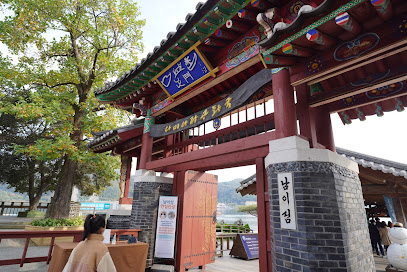
Soyanggang Skywalk
Experience the breathtaking heights of Soyanggang Skywalk, where nature meets architecture in Chuncheon-si, South Korea.
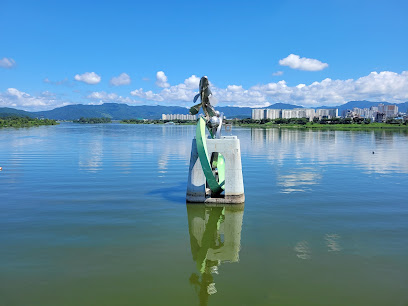
Gangchon Rail Park
Experience the beauty of Gangwon-do at Gangchon Rail Park, a unique rail biking adventure surrounded by stunning natural landscapes.
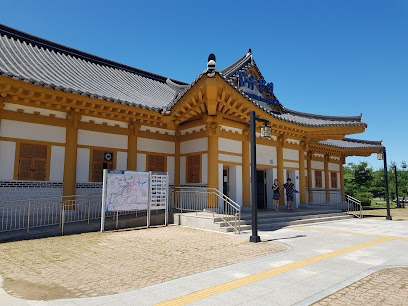
Petite France
Experience the charm of France in South Korea at Petite France, a picturesque village filled with culture, art, and delightful cuisine.
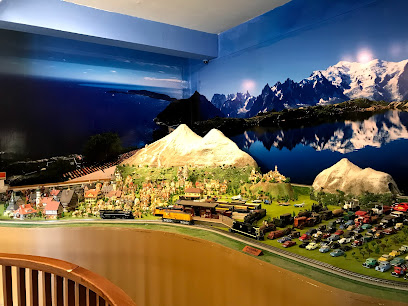
Jade Garden
Explore the serene beauty of Jade Garden Arboretum in Chuncheon-si, where nature's artistry and tranquility come together for an unforgettable experience.
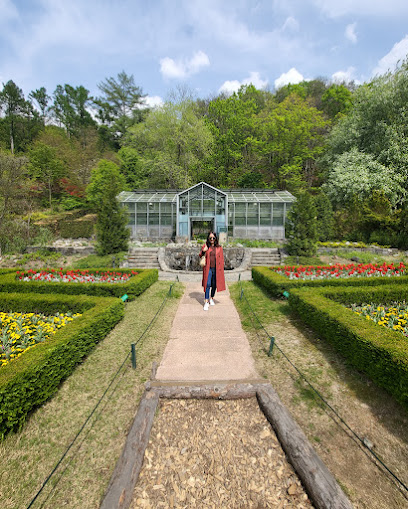
Santorini
Experience the charm of Santorini right in Chuncheon, where delightful cuisine meets stunning ambiance.
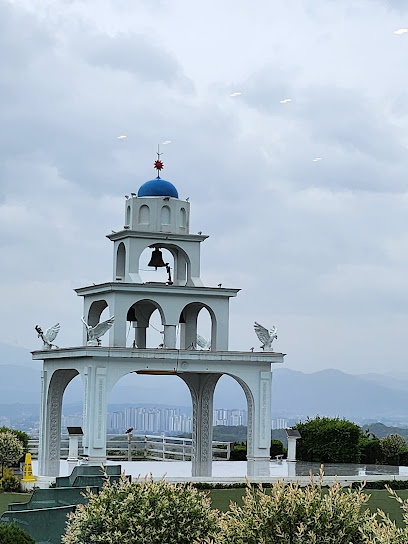
Chuncheon Dakgalbi Street
Explore Chuncheon Dakgalbi Street, a vibrant culinary destination in South Korea, famous for its delicious dakgalbi and lively dining atmosphere.
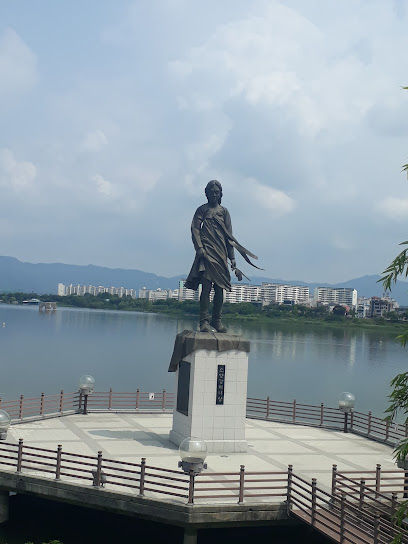
Animation Museum
Explore the vibrant world of animation at the Animation Museum in Chuncheon-si, where creativity and innovation come to life through interactive exhibits.
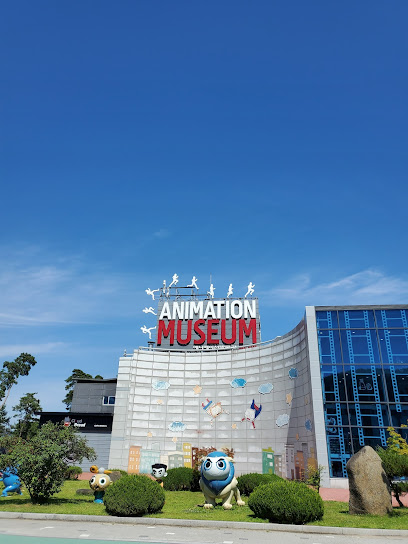
LEGOLAND Korea Resort
Discover the wonder of LEGOLAND Korea Resort, a magical theme park filled with thrilling rides, interactive attractions, and LEGO adventures in Chuncheon-si.
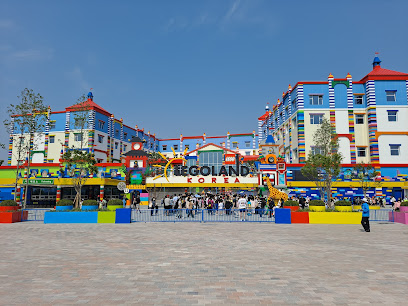
Chuncheon Samaksan Cable Car
Discover the breathtaking landscapes of Chuncheon from above on the scenic Samaksan Cable Car ride, a perfect adventure for every traveler.
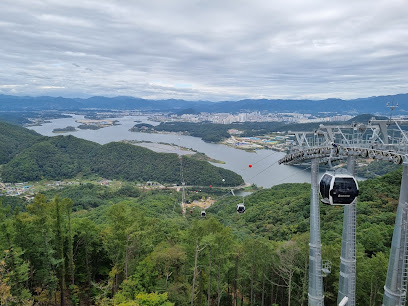
Chuncheon Station
Explore the heart of Gangwon-do from Chuncheon Station, your gateway to nature, culture, and unforgettable experiences in South Korea.
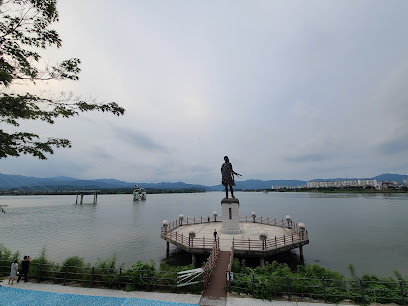
춘천중앙시장
Experience the vibrant local market of Chuncheon, where culinary delights and cultural treasures await in the heart of Gangwon-do.
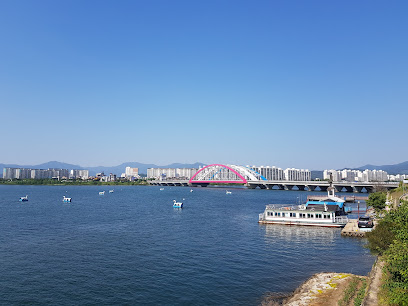
Gugok Falls
Explore the breathtaking Gugok Falls in Chuncheon, South Korea, a serene natural attraction perfect for photographers, hikers, and outdoor enthusiasts alike.
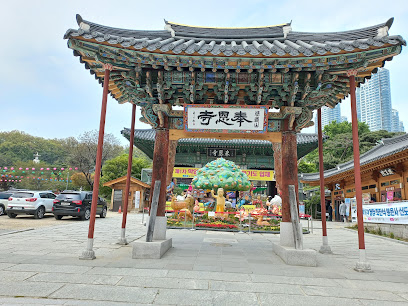
Cheongpyeongsa
Discover tranquility and traditional architecture at Cheongpyeongsa, a serene Buddhist temple in Chuncheon, South Korea.
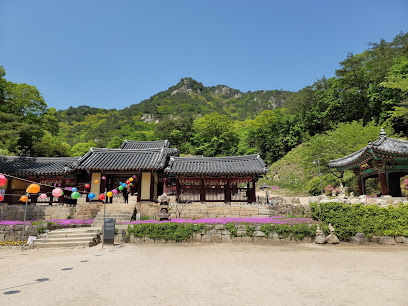
Kim Yujeong munhakchon
Explore the life and legacy of renowned Korean author Kim Yujeong at his dedicated museum in Chuncheon, a serene spot for literature lovers.
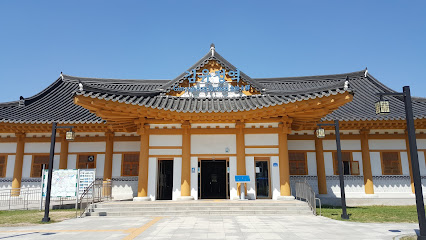
Unmissable attractions to see
Nami Island
Explore the stunning beauty of Nami Island, a serene nature preserve in Gangwon-do, South Korea, perfect for relaxation and adventure.
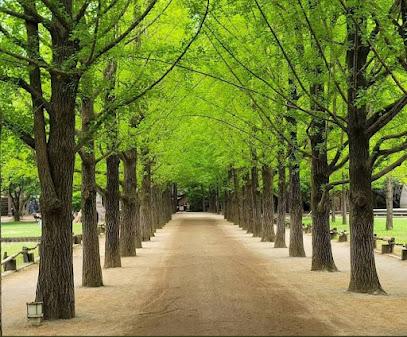
Garden of Morning Calm
Discover the breathtaking beauty of Korea's botanical wonder at the Garden of Morning Calm, a serene arboretum perfect for nature lovers.
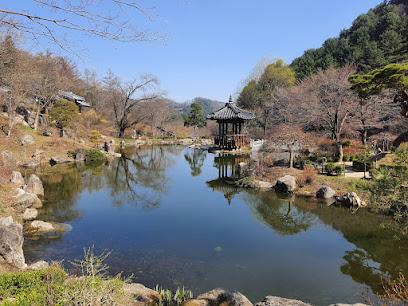
Vivaldi Park
Explore Vivaldi Park, a premier ski resort in Gangwon-do, South Korea, perfect for winter sports and luxurious relaxation amidst stunning mountain views.
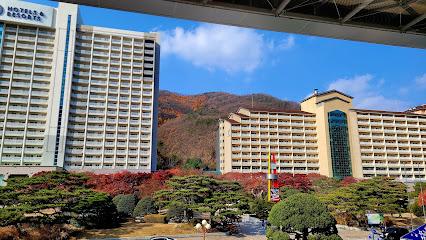
Soyanggang Skywalk
Discover breathtaking views and thrilling experiences at the Soyanggang Skywalk, a must-visit attraction in Chuncheon, South Korea.
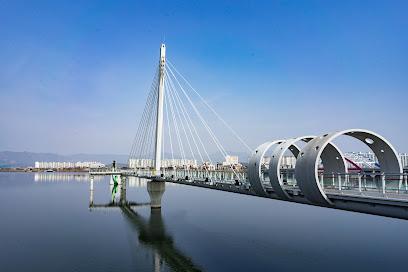
Gangchon Rail Park
Discover the scenic beauty of Chuncheon at Gangchon Rail Park, a unique attraction combining adventure and nature on pedal-powered rail bikes.
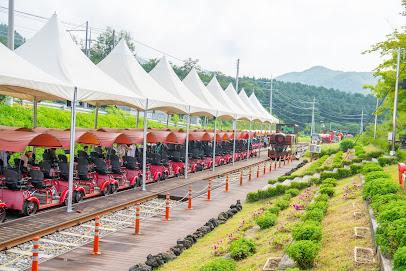
Vivaldi Park Ocean World
Experience the ultimate aquatic adventure at Vivaldi Park Ocean World, a premier water park in Gangwon-do, perfect for families and thrill-seekers.
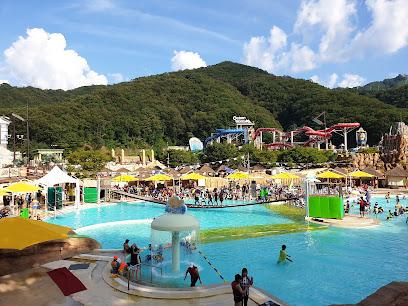
Petite France
Experience the magic of France at Petite France, a charming cultural village in South Korea that offers delightful architecture, art, and cuisine.
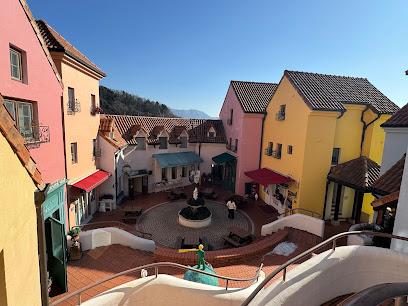
Alpaca World
Experience the charm of Alpaca World in Gangwon-do, where you can interact with friendly alpacas and explore beautiful landscapes for a perfect family day.
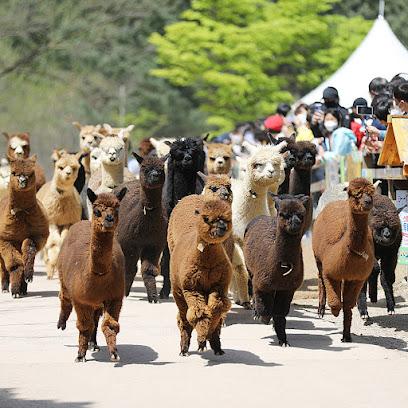
Jade Garden
Explore the captivating beauty of Jade Garden in Chuncheon-si, a serene arboretum showcasing a diverse array of plants and stunning landscapes.
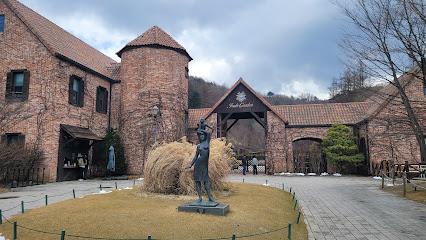
Jade Garden
Explore the serene beauty of Jade Garden, a stunning arboretum in Chuncheon-si, Gangwon-do, showcasing diverse flora and picturesque landscapes.
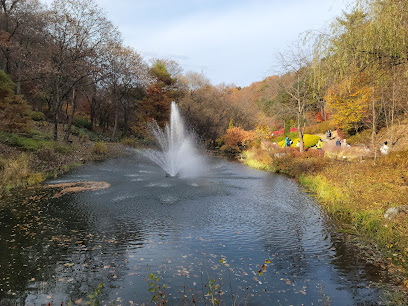
LEGOLAND Korea Resort
Experience the magic of creativity and adventure at LEGOLAND Korea Resort, where imagination meets thrilling fun for the whole family.
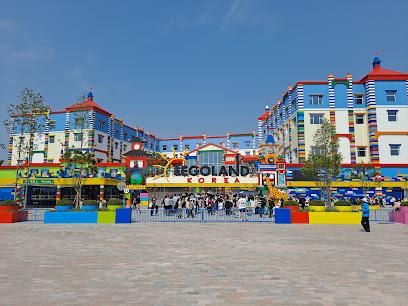
Animation Museum
Explore Chuncheon's Animation Museum, a captivating hub of creativity showcasing the history and magic of animation through engaging exhibits and workshops.
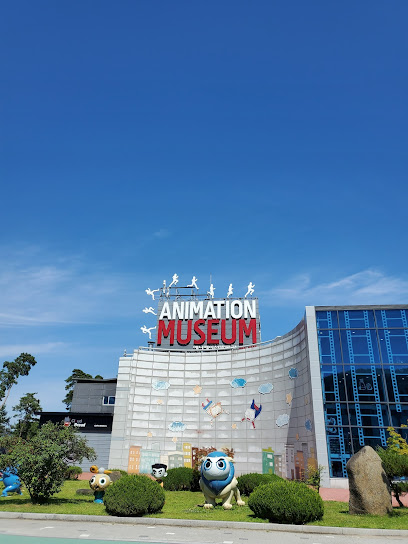
춘천중앙시장
Experience the heart of Chuncheon at the Traditional Market, where local culture, cuisine, and crafts come alive in a vibrant atmosphere.
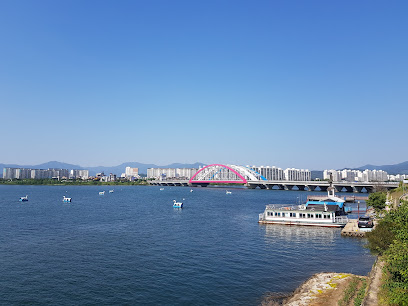
Yongmunsan Yongmunsa Temple
Experience spiritual serenity and stunning scenery at Yongmunsan Yongmunsa Temple in Gyeonggi-do, a peaceful retreat for all travelers.
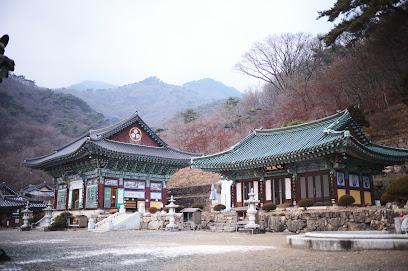
Wondae-ri Birch Forest
Discover the tranquility of Wondae-ri Birch Forest, a picturesque retreat in Gangwon-do, South Korea, known for its stunning birch trees and serene trails.
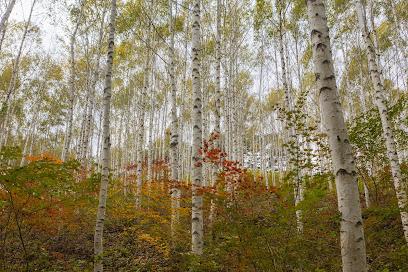
Essential places to dine
Tongnamujib Dakgalbi
Discover the authentic taste of Korea at Tongnamujib Dakgalbi - home to delectable dak-galbi in Chuncheon-si.
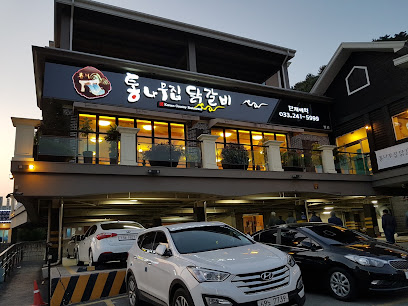
1.5 Dakgalbi
Discover authentic Korean flavors at 1.5 Dakgalbi in Chuncheon-si - home of mouthwatering dakgalbi served with passion and tradition.
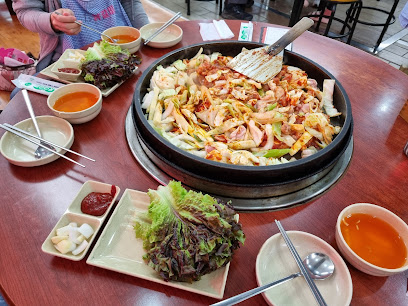
Kko Kko Dakgalbi Chuncheon
Experience the authentic taste of Korean dak-galbi at Kko Kko Dakgalbi Chuncheon, where flavor meets tradition in every bite.
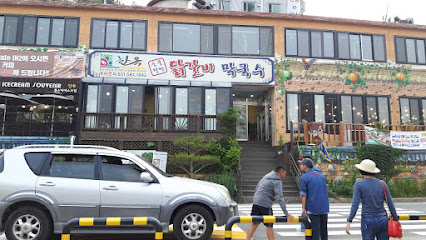
Gangchon Wumi Sutbul Dakgalbi
Experience authentic Korean dakgalbi at Gangchon Wumi Sutbul Dakgalbi in Chuncheon-si—where flavors come alive on your plate.
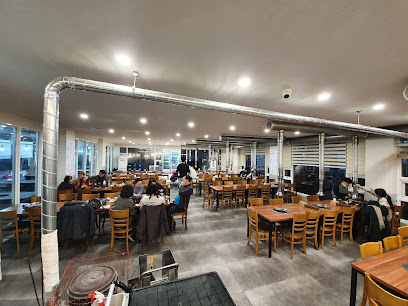
Hamji
Discover authentic Japanese tonkatsu at Hamji in Chuncheon - where every bite tells a story of flavor and tradition.
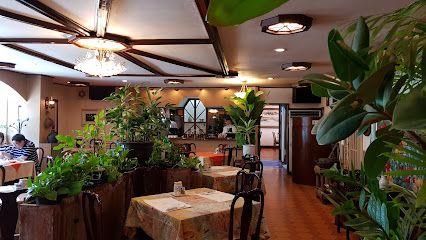
현대뚝배기
Experience authentic Korean cuisine at 현대뚝배기 in Chuncheon-si – where tradition meets flavor!
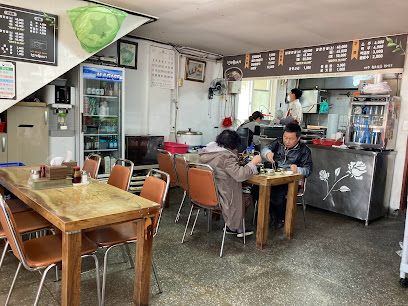
Atti Chuncheon Dak(chicken)-galbi
Experience authentic Korean dak-galbi at Chuncheon Dak-galbi – where every bite is a flavorful adventure in a lively setting.
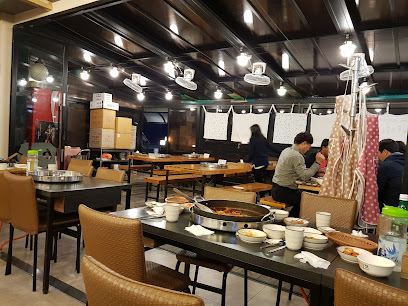
Seomhyanggi
Experience authentic Korean flavors at Seomhyanggi in Chuncheon-si - where tradition meets taste amidst breathtaking scenery.
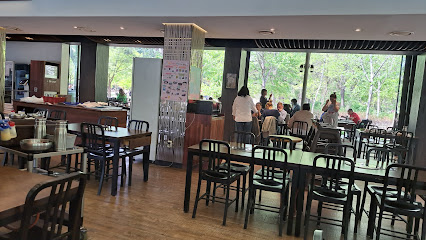
Maha Sidda
Discover authentic Indian flavors at Maha Sidda in Chuncheon – where every dish is a journey through India's rich culinary heritage.
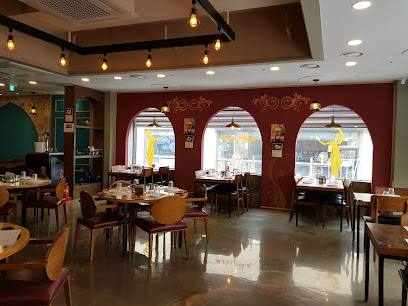
Gomok Restaurant
Discover culinary delights at Gomok Restaurant on Namiseom Island - a perfect brunch spot surrounded by breathtaking nature.
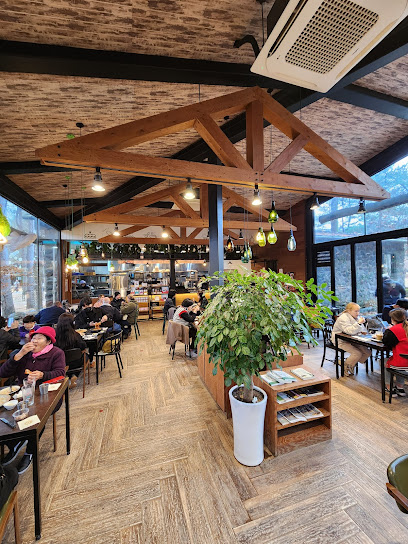
땡촌닭발 본점
Experience authentic Korean flavors at 땡촌닭발 본점 in Chuncheon – a paradise for food lovers seeking spicy delights.
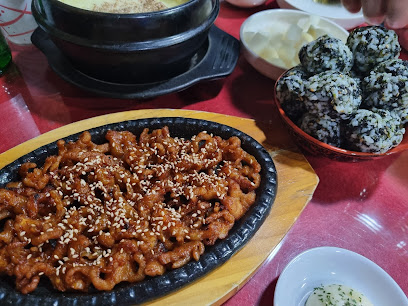
춘천민속 닭갈비
Savor the essence of Chuncheon's culinary heritage at 춘천민속 닭갈비 – where every bite tells a story.
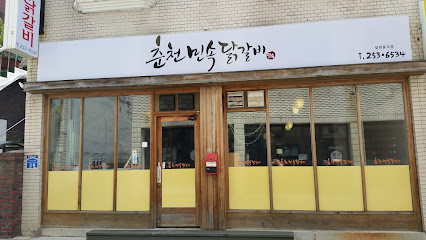
Asian Family Restaurant Dongmoon
Experience authentic Asian flavors at Asian Family Restaurant Dongmoon in Chuncheon-si - perfect for families and food lovers alike.
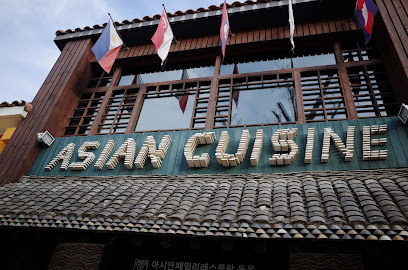
오팔왕돈까스
Experience authentic Korean cuisine at 오팔왕돈까스 - home of the finest 돈까스 in Chuncheon.
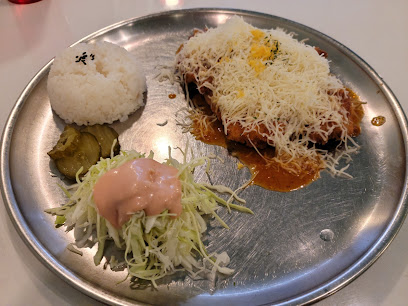
별채식당
Savor authentic Korean flavors at 별채식당 in Chuncheon - where every dish tells a story!
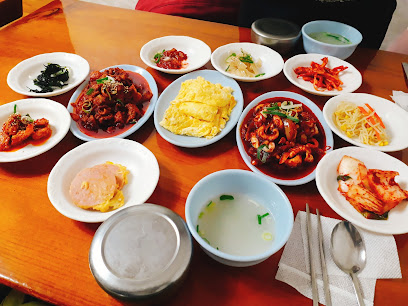
Markets, malls and hidden boutiques
동해슈퍼
Explore the vibrant offerings of Donghae Super, your gateway to local flavors and culinary treasures in Chuncheon-si, Gangwon-do.
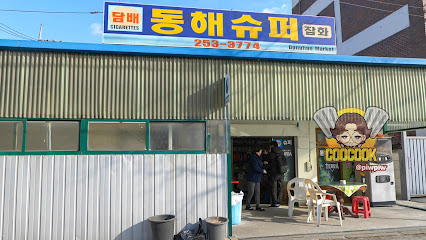
루디아
Discover unique fashion finds at Lydia, a trendy clothing store in Chuncheon, where local styles meet international flair for every fashionista.
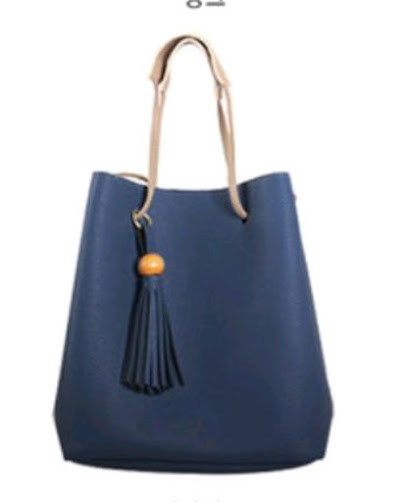
Nami Shop
Explore Nami Shop on Nami Island for unique souvenirs and local crafts that capture the beauty and culture of this enchanting destination.
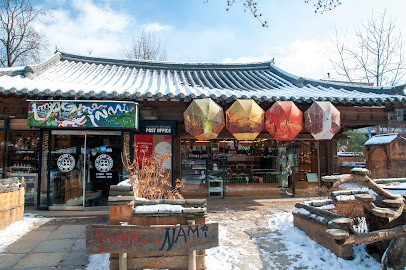
그린액자(Green picture-frame)
Explore the charm of unique home goods and Korean craftsmanship at Green Picture-Frame in Chuncheon-si, a perfect destination for decor lovers and travelers.

동산쇼핑
Explore the vibrant world of 동산쇼핑, a bustling supermarket in Chuncheon-si offering local flavors, fresh produce, and unique souvenirs.

비커바이
Explore 비커바이 in Chuncheon for a unique selection of cosmetics and beauty products that celebrate Korean skincare and makeup trends.

Mondeez 몬디즈
Explore trendy men's fashion at Mondeez 몬디즈 in Chuncheon-si, offering stylish apparel and accessories for the modern man.

Pawosyab
Discover the thrill of lottery at Pawosyab in Chuncheon, where luck and local culture intertwine for an unforgettable experience.

킹드레스
Explore the unique fashion offerings of 킹드레스 in Chuncheon, where local style meets modern trends in a vibrant shopping experience.

Artshop
Explore Artshop in Chuncheon-si for unique gifts that celebrate the art and culture of Gangwon-do, perfect for memorable souvenirs.
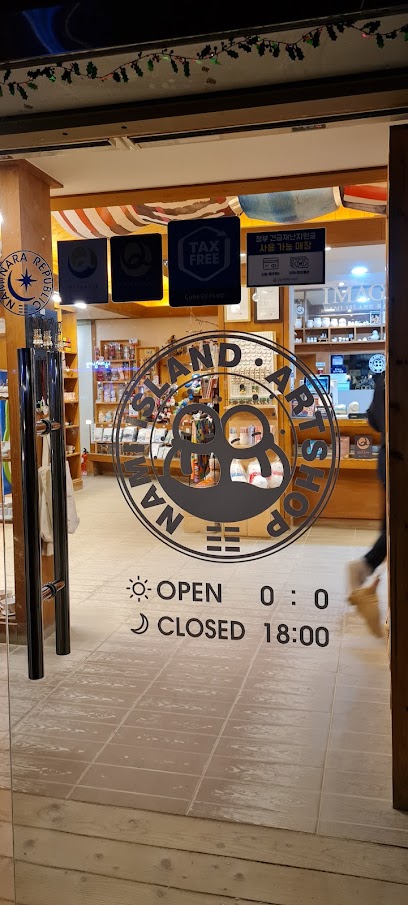
드림오피스
Explore 드림오피스 in Chuncheon-si for unique home goods that embody Korean craftsmanship and charm.
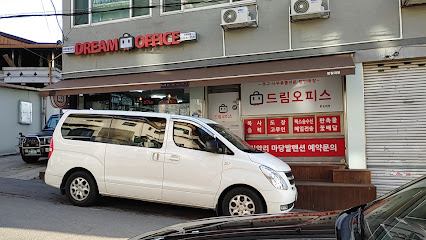
러브샵
Experience the unique offerings at 러브샵, Chuncheon-si's premier adult entertainment store, blending culture and curiosity in one intriguing location.
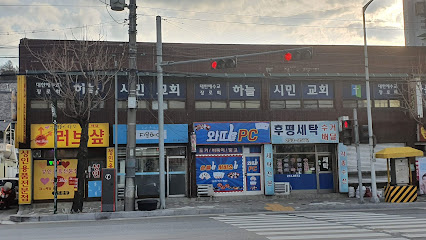
그루망디즈
Experience the sweet side of Chuncheon-si at 그루망디즈, a charming bakery offering delightful pastries and local flavors.
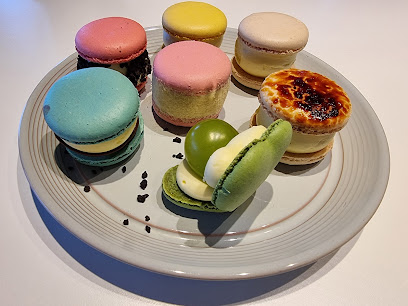
선물의집로제
Discover unique Korean souvenirs and local crafts at 선물의집로제, your go-to gift shop in Chuncheon.

스페셜리
Explore 스페셜리 in Chuncheon for unique, locally crafted gifts that capture the heart of Gangwon-do's artistic spirit.

Essential bars & hidden hideouts
bar & lounge
Discover Chuncheon-si's vibrant nightlife at this chic bar & lounge, perfect for cocktails, socializing, and unforgettable evenings.
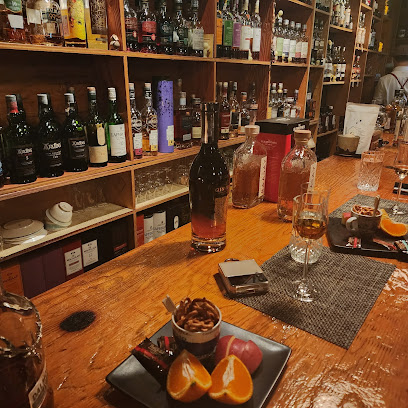
쉐도우Bar
Discover the vibrant nightlife of Chuncheon at 쉐도우Bar, where innovative cocktails and a lively atmosphere await every night.
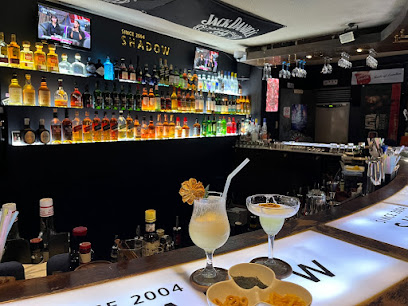
PubQ(펍큐)
Discover Chuncheon's nightlife at PubQ, a lively sports bar offering great drinks, dart competitions, and a vibrant atmosphere for all visitors.
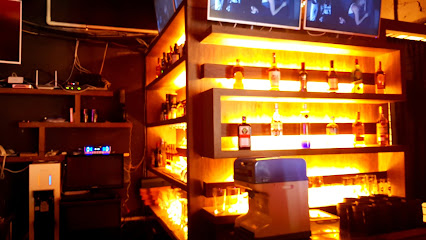
Jackson Bill Bar
Discover the lively nightlife and unique atmosphere of Jackson Bill Bar in Chuncheon-si, featuring an extensive vinyl collection and delicious drinks.
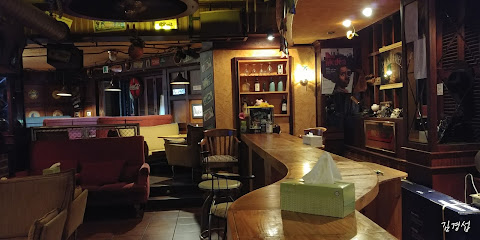
유키바 YUKI Bar
Experience the charm of Chuncheon at 유키바 YUKI Bar, where delightful drinks and a vibrant atmosphere await every traveler.
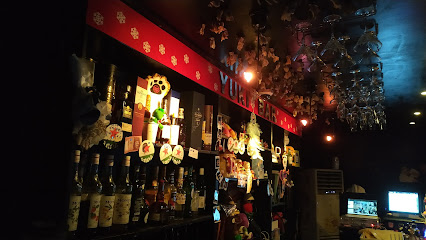
화자다이닝펍 Dinning pub
Discover the vibrant dining experience at 화자다이닝펍 in Chuncheon-si, where delicious food meets an energetic nightlife atmosphere.
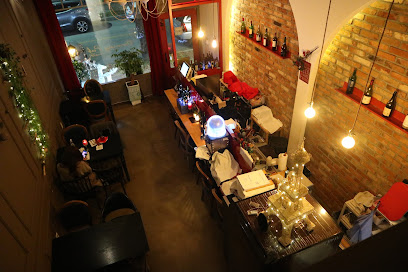
루트나인
Discover the vibrant nightlife at 루트나인, a trendy bar in Chuncheon-si offering craft cocktails and a lively atmosphere for all guests.
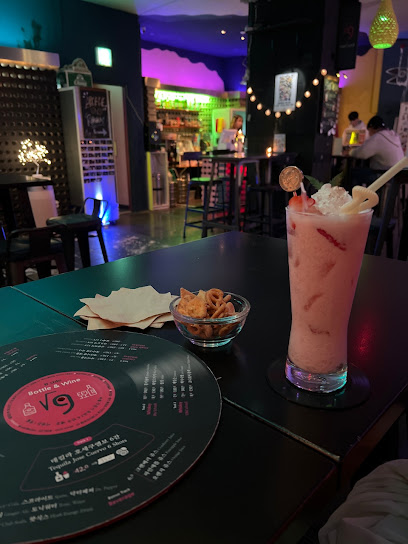
Batendeo
Experience the vibrant nightlife at Batendeo cocktail bar in Chuncheon, where expert mixology meets a lively atmosphere.
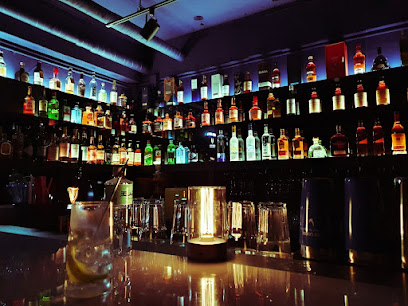
Kkochpilnyeok
Discover the vibrant atmosphere and local flavors at Kkochpilnyeok, a must-visit bar in Chuncheon, South Korea, perfect for unwinding after a day of exploration.
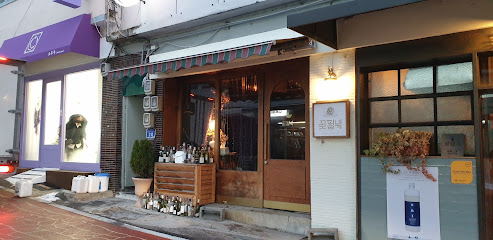
Mim
Experience the vibrant nightlife at Mim, a chic bar in Chuncheon, offering exceptional drinks and a lively atmosphere.
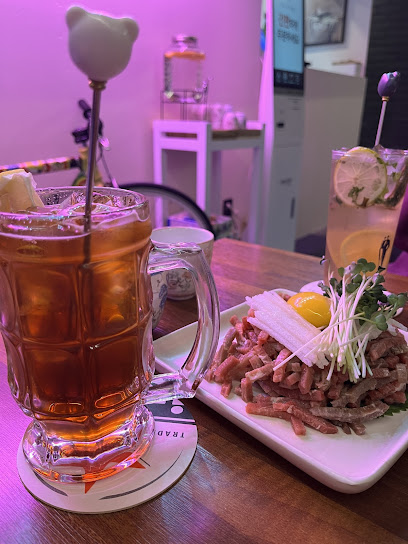
Bakodeu
Discover the vibrant nightlife at Bakodeu, a popular bar in Chuncheon-si, where great drinks and an energetic atmosphere await.
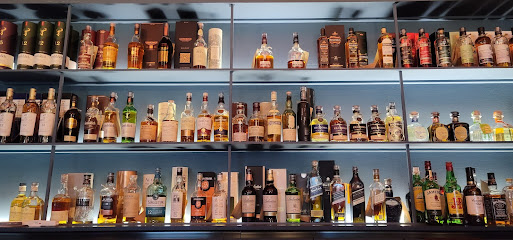
큐스타앤펍
Discover the vibrant atmosphere and diverse drink selection at 큐스타앤펍, a must-visit bar in Chuncheon, Gangwon-do.

비원 디제잉라운지바 (B1 Djing Lounge Bar)
Discover the energetic vibe of B1 Djing Lounge Bar in Chuncheon-si, a must-visit for cocktail lovers and nightlife enthusiasts.

Swijeu
Discover the vibrant nightlife at Swijeu, a cozy bar in Chuncheon offering local brews and crafted cocktails in a welcoming atmosphere.

Local Phrases
-
- Hello안녕하세요
[annyeonghaseyo] - Goodbye안녕히 가세요
[annyeonghi gaseyo] - Yes네
[ne] - No아니요
[aniyo] - Please/You're welcome부탁해요/천만에요
[butakhaeyo/cheonmaneyo] - Thank you감사합니다
[gamsahamnida] - Excuse me/Sorry죄송합니다
[joesonghamnida] - How are you?어떻게 지내세요?
[eotteoke jinaeseyo?] - Fine. And you?잘 지내요. 그리고 당신은요?
[jal jinaeyo. geurigo dangsineunyo?] - Do you speak English?영어 할 수 있어요?
[yeongeo hal su isseoyo?] - I don't understand이해하지 못해요
[ihaehaji mothaeyo]
- Hello안녕하세요
-
- I'd like to see the menu, please메뉴를 보고 싶어요
[menyureul bogo sipseoyo] - I don't eat meat고기를 먹지 않아요
[gogireul meokji anayo] - Cheers!건배!
[geonbae!] - I would like to pay, please계산하고 싶어요
[gyesanhago sipseoyo]
- I'd like to see the menu, please메뉴를 보고 싶어요
-
- Help!도와주세요!
[dowajuseyo!] - Go away!가세요!
[gaseyo!] - Call the Police!경찰을 불러주세요!
[gyeongchareul bulleojuseyo!] - Call a doctor!의사를 불러주세요!
[uisareul bulleojuseyo!] - I'm lost길을 잃었어요
[gireul ilheosseoyo] - I'm ill아파요
[apayo]
- Help!도와주세요!
-
- I'd like to buy...구입하고 싶어요...
[guibhago sipseoyo...] - I'm just looking구경만 하고 있어요
[gugyeongman hago isseoyo] - How much is it?얼마에요?
[eolmaeyo?] - That's too expensive너무 비싸요
[neomu bissayo] - Can you lower the price?가격을 내릴 수 있어요?
[gageoreul naeril su isseoyo?]
- I'd like to buy...구입하고 싶어요...
-
- What time is it?지금 몇 시에요?
[jigeum myeot sieyo?] - It's one o'clock한 시에요
[han sieyo] - Half past (10)열 시 반
[yeol si ban] - Morning아침
[achim] - Afternoon오후
[ohu] - Evening저녁
[jeonyeok] - Yesterday어제
[eoje] - Today오늘
[oneul] - Tomorrow내일
[naeil] - 1하나
[hana] - 2둘
[dul] - 3셋
[set] - 4넷
[net] - 5다섯
[daseot] - 6여섯
[yeoseot] - 7일곱
[ilgop] - 8여덟
[yeodeol] - 9아홉
[ahop] - 10열
[yeol]
- What time is it?지금 몇 시에요?
-
- Where's a/the...?...이 어디에 있어요?
[...i eodie isseoyo?] - What's the address?주소가 어떻게 되요?
[jusoga eotteoke doeyo?] - Can you show me (on the map)?지도를 보여주실 수 있어요?
[jido-reul boyeojusil su isseoyo?] - When's the next (bus)?다음 버스는 언제 와요?
[daeum beoseuneun eonje wayo?] - A ticket (to ....)표 한 장 주세요 (....으로)
[pyo han jang juseyo (....euro)]
- Where's a/the...?...이 어디에 있어요?
History of Chuncheon
-
Chuncheon, the capital city of Gangwon Province, has a history that dates back to ancient times. Archaeological evidence suggests that the area was first inhabited during the prehistoric period. The city's name, Chuncheon, which means 'Spring River,' is derived from its scenic location along the Soyang River and Lake Uiam. Early settlers were attracted by the fertile lands and abundant water sources, making it an ideal location for agriculture and settlement.
-
During the Goryeo Dynasty (918-1392), Chuncheon became an important regional center. The city flourished culturally and economically due to its strategic location. Buddhist temples and shrines were established, contributing to the spread of Buddhism in the region. The Goryeo period left behind numerous cultural artifacts and relics, including pottery and stone monuments, which can still be seen today.
-
In the early 20th century, Chuncheon underwent significant changes during the Japanese occupation of Korea (1910-1945). The city saw the construction of modern infrastructure, including roads, railways, and public buildings. Although this period was marked by hardship and resistance, it also set the stage for Chuncheon's modernization. Historical sites from this era, such as the old Chuncheon Station, provide a glimpse into the city's transformation.
-
Chuncheon played a pivotal role during the Korean War (1950-1953). The city was a strategic military point, and it witnessed fierce battles, particularly during the Battle of Chuncheon. The aftermath of the war left Chuncheon in ruins, but the resilient spirit of its people led to rapid reconstruction and development. Memorials and museums in the city, such as the Chuncheon National Museum, commemorate this turbulent yet defining period in its history.
-
Post-war Chuncheon experienced significant economic growth, particularly from the 1960s onwards. The city's economy diversified, encompassing agriculture, industry, and services. Chuncheon's natural beauty, combined with its cultural heritage, has made it a popular tourist destination. Attractions like Nami Island, famous for its picturesque landscapes and as a filming location for Korean dramas, draw visitors from around the world, contributing to the city's vibrant tourism industry.
-
Today, Chuncheon is known for its lively cultural scene and festivals. The Chuncheon International Mime Festival, the Chuncheon Puppet Festival, and the Chuncheon Makguksu Festival celebrate the city's artistic and culinary traditions. These events highlight Chuncheon's dynamic culture and community spirit. The city's blend of historical significance and modern attractions make it a unique and enriching place to visit.
Chuncheon Essentials
-
Chuncheon is located in the Gangwon Province of South Korea. The nearest international airport is Incheon International Airport, approximately 150 kilometers away. From Incheon, you can take an airport limousine bus or a train to Seoul, and then transfer to the ITX-Cheongchun train, which takes about 1.5 hours to reach Chuncheon. Alternatively, you can take an express bus directly from the Dong Seoul Bus Terminal to Chuncheon, which takes around 1.5 to 2 hours.
-
Chuncheon has a well-connected public transportation system. The ITX-Cheongchun train line connects Chuncheon to Seoul and other major cities. Local buses are available and provide easy access to various attractions within the city. Taxis are also readily available and relatively affordable. For those who prefer more flexibility, renting a car is an option, though parking can be challenging in busy areas.
-
The official currency in South Korea is the South Korean Won (KRW). Credit and debit cards are widely accepted in hotels, restaurants, and shops. However, it is advisable to carry some cash for smaller establishments and markets. ATMs are available throughout Chuncheon, including in convenience stores and banks. Ensure your card is compatible with Korean ATMs, and inform your bank about your travel plans to avoid any issues.
-
Chuncheon is generally a safe city for tourists. However, it is always wise to take standard precautions. Avoid walking alone at night in poorly lit areas and keep an eye on your personal belongings in crowded places. While there are no specific high-crime areas targeting tourists, staying vigilant and aware of your surroundings is always a good practice.
-
In case of an emergency, dial 112 for police assistance and 119 for fire and medical emergencies. Chuncheon has several hospitals and medical facilities available. It is recommended to have travel insurance that covers medical emergencies. For minor health issues, there are numerous pharmacies where you can purchase over-the-counter medications. English-speaking staff may be limited, so having a translation app can be helpful.
-
Fashion: Do dress modestly and comfortably. Avoid overly revealing clothing, especially when visiting religious sites. Religion: Do respect local customs and traditions. Show respect when visiting temples and shrines by dressing appropriately and removing your shoes when required. Public Transport: Do be respectful and quiet on public transport. Avoid talking loudly and give up your seat to elderly passengers. Greetings: Do greet people with a slight bow or a nod. Handshakes are common but be mindful of personal space. Eating & Drinking: Do try local delicacies like Dakgalbi and Makguksu. Don't leave food unfinished, as it is considered wasteful. When dining with locals, wait for the eldest person to start eating before you begin.
-
For an authentic Chuncheon experience, visit the Chuncheon Myeongdong Dakgalbi Street for a taste of the city’s famous spicy stir-fried chicken. Take a leisurely stroll or cycle around Uiamho Lake for scenic views and relaxation. Engage with locals at the Chuncheon Folk Flea Market to discover unique local goods and crafts. Don't miss Nami Island, a short ferry ride away, known for its beautiful tree-lined paths and cultural attractions.
Nearby Cities to Chuncheon
-
Things To Do in Seoul
-
Things To Do in Suwon
-
Things To Do in Incheon
-
Things To Do in Andong
-
Things To Do in Daejeon
-
Things To Do in Jeonju
-
Things To Do in Daegu
-
Things To Do in Pohang
-
Things To Do in Gyeongju
-
Things To Do in Ulsan
-
Things To Do in Gwangju
-
Things To Do in Busan
-
Things To Do in Suncheon
-
Things To Do in Mokpo
-
Things To Do in Jeju City







